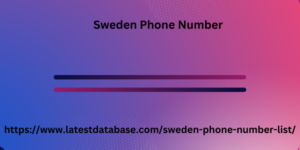|
|
You can improve your site's visibility and relevance to search engines, ultimately driving targeted traffic and achieving your digital goals. Why On-Page SEO Is Important On-page SEO is critical for a number of reasons. First, it helps search engines understand your content, allowing them to accurately index and rank your site. Second, it improves the user experience by making your site more navigable, readable, and engaging. Finally, effective on-page optimization increases your chances of ranking higher in search engine results pages, driving organic traffic and improving your site's authority and credibility. Part 1: On-Page Elements Keyword Research and Optimization Keywords form the foundation of on-page SEO. Thorough keyword research helps identify relevant terms and phrases that users search .
SEO helps search engines understand the context and relevance of your webpage. Keywords: Unlock Semantic Relevance Latent Sweden Phone Number Semantic Indexing Keywords are closely related terms that provide semantic relevance to your content. By incorporating keywords, you can expand the vocabulary of your content and make it more comprehensive. For example, if your primary keyword is “digital marketing,” then keywords like “,”, “social media marketing,” or “content strategy” can enhance the overall relevance of your page. Long-Tail Keywords: Attract Niche Audiences Long-tail keywords are longer, more specific phrases that target a niche audience. While they may have lower search volumes compared to broad keywords, they typically have higher conversion rates. Long-tail keywords help you capture highly motivated and targeted traffic.

For example, instead of targeting “running shoes,” you can focus on “best lightweight running shoes for marathon training.” This specificity attracts users who are about to make a purchasing decision. Meta Tags: Craft Engaging Titles and Descriptions Meta tags, including title tags and meta descriptions, are critical to on-page SEO. The title tag appears as a clickable headline in search engine results, while the meta description provides a brief summary of the page’s content. Incorporating relevant keywords into these tags can increase your page’s visibility and click-through rate. Title Tags: Organize and Structure Title tags, , etc. structure your content, making it easier for users and search engines to understand its hierarchy. The </head> tag represents the main title of the page, while subsequent headings, , etc. divide the content into sections. Including keywords in the title provides additional context and relevance for search engines.
|
|